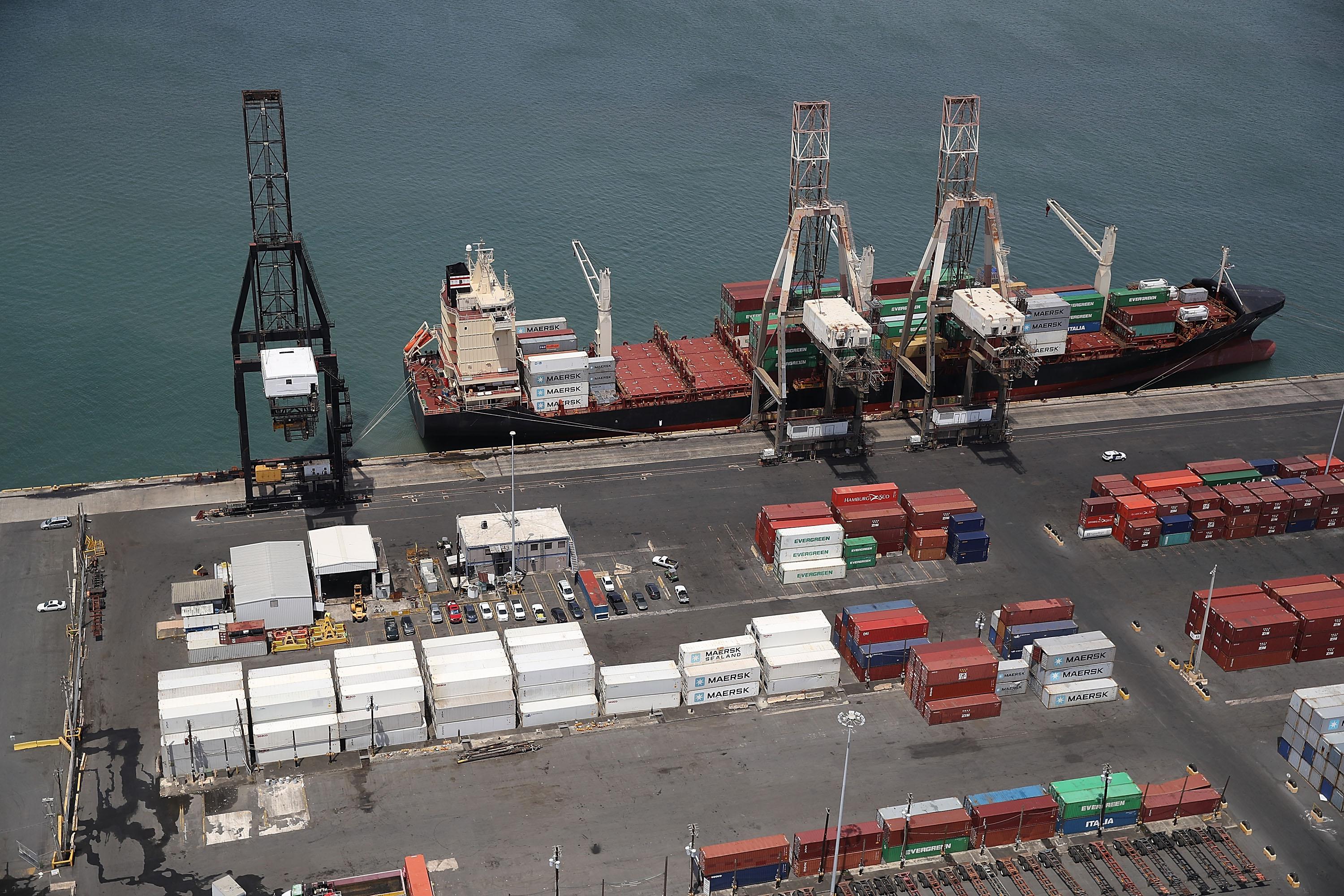As Washington begins to react to the overwhelming devastation wrought by Hurricane Maria in Puerto Rico, some things will proceed as usual. President Trump signed a disaster declaration on Thursday; Congress is working on an aid package that House Majority Leader Paul Ryan says will be ready sometime in October.
But the response to Maria, which has left most Puerto Ricans without power and many without running water, will also hinge on how Congress and the president approach the crisis the island was in before the storm hit.
For example: Puerto Rico essentially declared bankruptcy earlier this year, by a procedure that Congress made possible last summer. Should the Federal Emergency Management Agency waive its typical requirement that localities pay a 25 percent match for federal aid dollars? Jenniffer González-Colón, the island’s nonvoting congressional representative, says it should. Sens. Elizabeth Warren, Chuck Schumer, and Robert Menendez have endorsed that idea.
Later on, the fiscal control board put in place by that law will have to decide whether to continue with its austerity program, which is projected to inflict several more years of recession in order to keep paying off the island’s debts.
At some point, too, Congress may have to reconsider the Puerto Rican statehood drive, whose prospects may get a boost from the perception that the island’s plight is being ignored by a government in which it has no representation.
But before that will come a debate over the Jones Act, a century-old shipping law that’s often accused of stifling the Puerto Rican economy. Nydia Velázquez, the Puerto Rico–born congresswoman who represents parts of New York City, has said she will ask Congress for a one-year waiver to Jones Act requirements for the territory. It’s a good example of a policy question that will test Washington’s willingness to change its approach to Puerto Rico wholesale—to reconsider, in other words, whether Puerto Ricans’ status as citizens without full rights is really working.
If Congress botches these issues, they risk stoking Katrina-style population loss that could drain the island of the people it needs to recover. Puerto Rico’s population has been declining for a decade straight, falling by more than 10 percent since 2004. The more people leave, the greater the tax burden on the people still there to pay off billions in debt and pension obligations. “If we want to avert massive exodus in Puerto Rico, we must take action now,” Gov. Richard Rosselló said on Monday.
Among other things, the Jones Act requires that domestic shipping be conducted by U.S.-owned, U.S.-made ships staffed by American crews. That means, for example, that all food from the mainland—and Puerto Rico imports 85 percent of what it consumes—must be brought in U.S. ships.
The law was passed just after World War I with the intention of ensuring that America remained a nation of shipbuilders and seamen during times of peace so that the populace might be worthy seafarers in times of war. There’s a very good Planet Money episode about it, and the kind of trouble it causes for logistics at U.S. ports.
But for an import-dependent island like Puerto Rico, the law is perceived as a particular headache. The high cost of shipping, the New York Fed concluded in a 2014 report, was a “substantial burden on the island’s productivity.” The Jones Act may have helped Kingston, Jamaica, overtake San Juan, Puerto Rico, in container volume, for example:
It costs an estimated $3,063 to ship a twenty-foot container of household and commercial goods from the East Coast of the United States to Puerto Rico; the same shipment costs $1,504 to nearby Santo Domingo (Dominican Republic) and $1,687 to Kingston (Jamaica).
In a tacit acknowledgment of the act’s costs, the Department of Homeland Security has suspended the Jones Act in crises. This month, DHS Acting Secretary Elaine Duke signed a suspension of the Jones Act for oil and gas in the Eastern U.S. and Puerto Rico just before Hurricane Irma. (The U.S. Virgin Islands have been exempt since 1922.) That suspension, which was extended after Irma, expired last week.
Many Puerto Ricans have long held that the Jones Act is a burden, and both Rep. Gary Palmer, the Republican from Alabama, and Sen. John McCain have proposed granting the island an exemption. A Government Accountability Office report on the subject found that the island’s American carriers may drive up prices, but their dedicated routes ensure reliability and preserve more than 1,400 U.S. jobs (some of which are held by Puerto Ricans themselves).
Still, Puerto Rican consumers will want to see imports get as cheap as possible during the rebuilding period. There is little water, food, gas, or power. The PROMESA board, which is essentially in control of the island’s finances, has pledged to reduce the cost of living on the island as a way of getting the economy up and running again.
It will require a rebuilding program on an unprecedented scale to stem Puerto Rico’s population loss. An exemption from the Jones Act would be a sign that Congress is willing to address the island’s long-term problems in addition to the humanitarian crisis currently underway.
